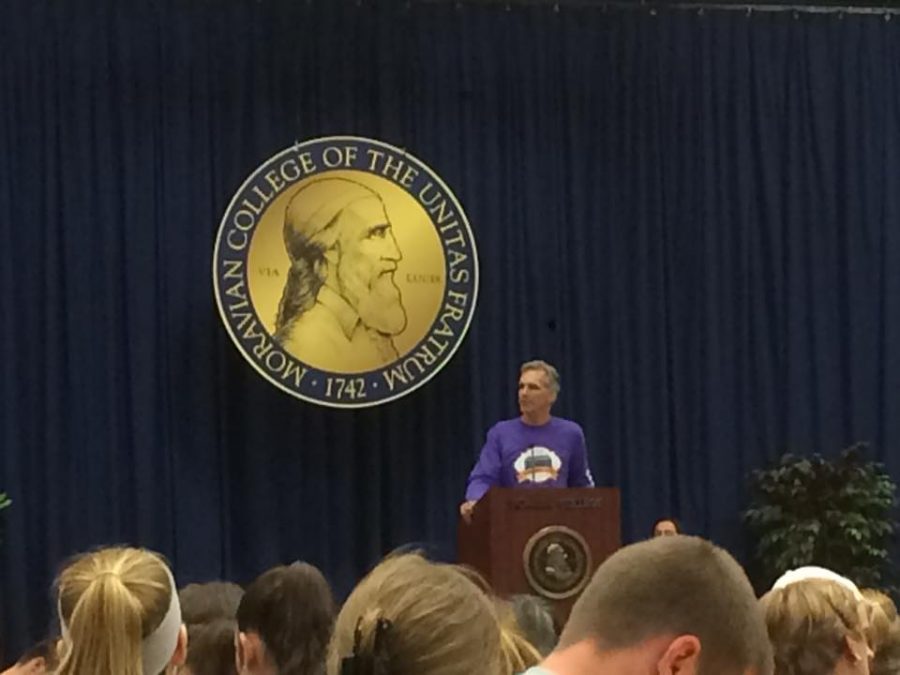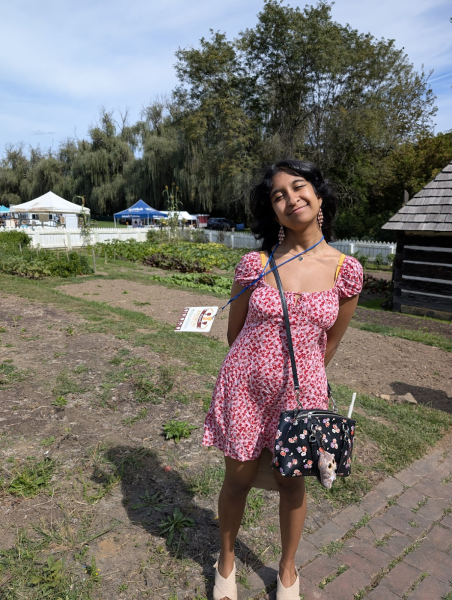Heritage Day and the Moravian Way
Members of the Moravian College and Bethlehem community took part in the day-long celebration of the first annual Heritage Day on Monday, Sept. 21.
During the celebrations of the College’s 275th anniversary and International Day of Peace, faculty, students, and staff at Moravian participated in three segments throughout the day: tradition, service, and community.
“In total, 1,195 Moravian College community members did over 2,300 hours of community service,” Angelo Fattore said, a senior at Moravian College and president of the United Student Government.
One of the speeches by Professor Craig Atwood during the tradition block was on the history of the College. His speech consisted of two parts: the first about the history of the Moravian religion and the second about the history of Moravian College.
In 1742, Countess Benigna, daughter of one of the religion’s most prominent theologians, Count Nicholas von Zinzendorf, established the first Moravian School, known as Bethlehem Female Seminary, for girls in Germantown, PA. Today, there are three schools under the Moravian name: the College, the Academy, and the Seminary. All share traditions of the Lovefeast,giving all affiliated with the Moravian name a sense of community.
Contrary to common knowledge within the Moravian community, Moravian was actually not the first institution to educate women. Catholics educated daughters of wealthy families. Moravian was the first to educate women who were not of the upper class.
The central theme to the Moravians’ religious teachings was peace and the transcending of the barriers of race and class. They proclaimed the worth of women, calling members brothers and sisters.
Atwood also explained how the Moravians shared the Lovefeast with Native Americans and enslaved Africans, an act of kindness to an extent no other religion had shown. They learned the Lenape and Mohican languages in order to communicate with them. James Fenimore Cooper’s book The Last of the Mohicans was inspired by this history.
The practice of religious tolerance for others was another Moravian belief. “The idea that people can reject or accept religion based on their own conscience is a highly progressive belief,” Atwood said.
Overall, many people found the Heritage Day to be a success. “It is important to learn our roots,” Fattore said. “We need to understand where we, as a College, have come from so we can continue to move into the future. Selfless community service is one of the pillars of the Moravian culture.”
A final impactful statement made by Atwood gave all who attended the day’s activities a something to think about: “It was Moravian vision that built this school…passion and community…because of peacefulness…meaning of purpose…this is the meaning of Moravianism at Moravian College.”







